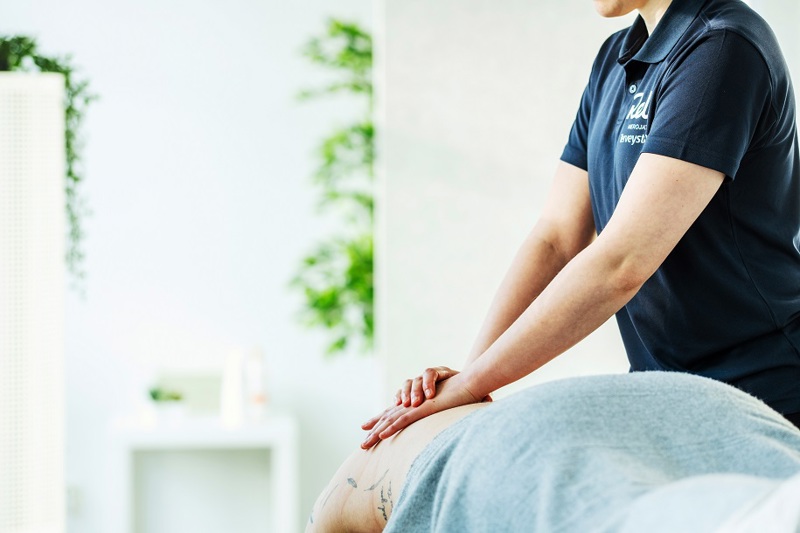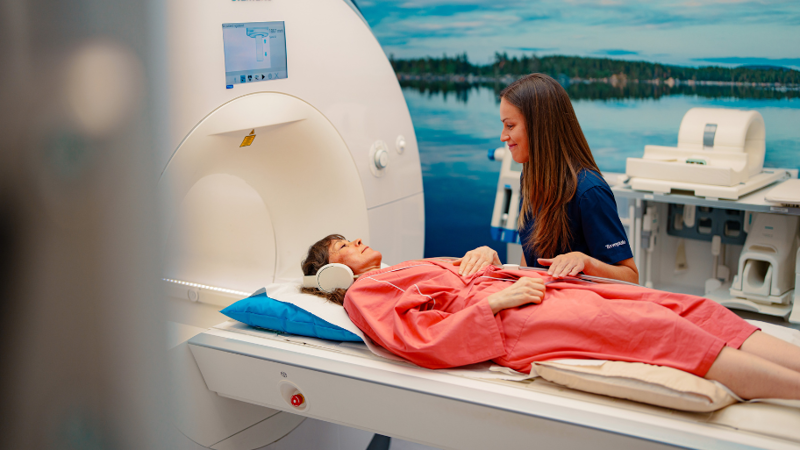Healthy Working Life Barometer 2025: How to ensure that Finnish working life remains competitive and healthy in the future?
Terveystalo's annual Healthy Working Life Barometer surveyed the state of Finnish working life and the ability of organisations to respond to the changing world of work.

The results of the 2025 Barometer show a fast-paced and stressful working life, which is reflected in a decline in healthy working life and performance. Only 43% of Finns consider their working life to be somewhat healthy or very healthy. Worryingly, the CEOs and entrepreneurs who are steering the future direction of working life also see their assessments of the overall healthiness of working life as declining, even though they perceive their own organisation to be functioning at a level twenty percentage points healthier.
In the same context, the barometer results show that the biggest challenges for the future of working life are a shortage of professionals and competition for talent. How do we ensure that Finnish working life remains competitive and healthy in the future?
– The results show an uncertain and unpredictable environment, which has been addressed by a stronger focus on efficiency management. The work-life balance has declined further, with around a fifth now saying that it is not balanced at all. The challenges of staying fit are affecting work performance, which means that the productivity trap we are striving for is not being achieved by tightening the screws. In working life, we need to succeed in taking human factors into account and managing a productive workforce by providing predictability and creating a sense of hope and confidence in the future," says Annamari Heikkilä, senior organisational psychologist at Terveystalo.
AI and digitalisation will only solve things if staff have the skills to use them
All respondents are very unanimous about the enablers of future working life. There are high expectations for digitalisation, but the assessments of front-line managers differ from those of senior management and HR decision-makers to develop new solutions and use digitalisation. The difference in perceptions reflects the unlikelihood that the debate on exploitation and work transformation has been conducted with the involvement of staff at all levels of the organisation.
– It is great that digitalisation is seen as an opportunity for the workplace, right up to top management. Harnessing digitalisation requires learning from and learning new things as a workplace meta-skill, and the benefits of new technologies may be limited if the skills and competences of employees are not ensured when planning their introduction. In the worst case, the investment in technology can result in new work capacity challenges in occupational health that cannot be solved by medical means," says Silja Komulainen, senior physician in occupational health at Terveystalo.
Frontline staff need support to succeed as leaders
The ability to identify the need for early support has increased across all respondents, with 60% of all respondents rating this as good or very good.
– The results show how well early support approaches are becoming commonplace, with frontline staff able to identify the needs of different age groups and generations, for example, and adapt their leadership to different situations. However, identification does not make you happy if the line manager does not have the skills to take things forward," says Riia Astola-Pöllänen, Senior Work Capacity Coach at Terveystalo.
Even when needs are effectively identified, only slightly less than half of the frontline workers feel that the organisation has the capacity to address the individual needs of each employee. This is also down by up to 20 percentage points compared to last year's survey.
– For top management, early support may appear to be working well, with up to 80% of CEOs rating their attention skills as good. If monitoring is focused on the discussions that have taken place, this does not indicate whether progress has actually been made. Employees' challenges are increasingly complex and the need for support is not always just work-related, making it more difficult for front-line managers to intervene effectively. They don't always have a clear idea of when and how to refer the employee on to resolve the issue, for example through retraining, so that the individual can continue working," says Ms Astola-Pöllänen.
Traditional work capacity management indicators favoured by decision-makers
From the perspective of work capacity management, sickness absence as a traditional management indicator has further strengthened its position. As many as 56% of decision-makers rank their number and 36% their duration among the most important indicators.
– Mental health absenteeism is a common challenge for all organisations in Finland, and no one can solve it alone. We need active cooperation between management and occupational health to find the best mental wellbeing practices for everyone and to succeed in our common goal of reducing mental health-related absenteeism. Providing psychological support to employees is important, but it needs to be accompanied by holistic strategies that take into account how employees can adapt their work and develop a work environment that supports wellbeing. One concrete way of preventing exclusion and supporting career continuity is to use substitute or reduced work," says Komulainen.
Read more occupational health articles

How technology helps relieve mental stress: "When the load is high, the threshold must be low."
Mental health disorders have overtaken musculoskeletal disorders, which had long been the leading cause of sick leave. Work is changing, and the range of sick leave caused by mental health issues has also changed. We must be able to offer new solutions to this challenge.

Extensive data set of 200,000 samples: Nightingale study reveals link between illness risks and sick leave
Data from the Finnish Nightingale study, which is used in Terveystalo's occupational health services, reveals a clear link between lifestyle-related health risks and sick leave. The exceptionally extensive data set of over 200,000 customers shows that people with a low risk of illness had significantly fewer absences, while those in high-risk groups had more absences. The results highlight the importance of preventive healthcare in ensuring work ability and the competitiveness of companies.

Strong identification speeds up your service experience when calling us
Soon you can identify yourself easily and securely before your call is answered. Read below to see how the identification process works.

Terveystalo's digital services have been awarded the internationally recognized ISO27001 information security certification.
Terveystalo's information security practices, processes, and risk management are in line with international best practices.

Does massage help relieve stress? – Touch restores and calms the body and mind
Stress is not always visible on the outside, but the body does show signs when the strain increases. According to Lassi Ylönen, a trained massage therapist at Terveystalo Rela, the body often communicates stress through subtle signs.

Circular economy and artificial intelligence boost performance and improve care
At the heart of sustainable healthcare, technology serves as a tool for improving both the quality of care and accountability. Terveystalo favors solutions that combine sustainability, cost-effectiveness, and medical expertise.